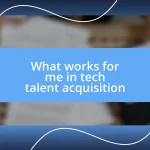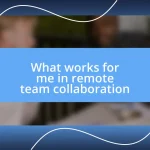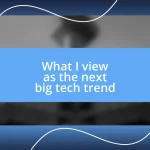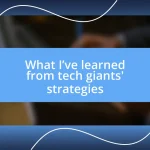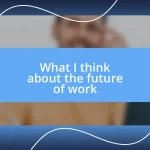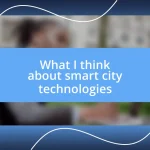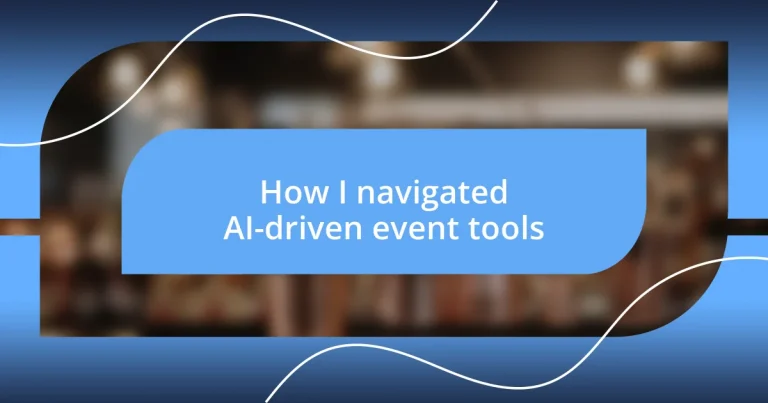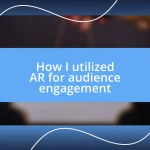Key takeaways:
- AI-driven tools significantly enhance event planning by automating tasks, providing real-time insights, and tailoring experiences based on attendee preferences, leading to more engaging and personalized events.
- Integrating AI into logistics, check-ins, and attendee interactions creates smoother experiences and fosters creativity, as these tools offer predictive analytics and data-driven recommendations.
- Successful implementations of AI in events, such as personalized networking and real-time feedback mechanisms, demonstrate its potential to deepen connections and improve overall attendee satisfaction.
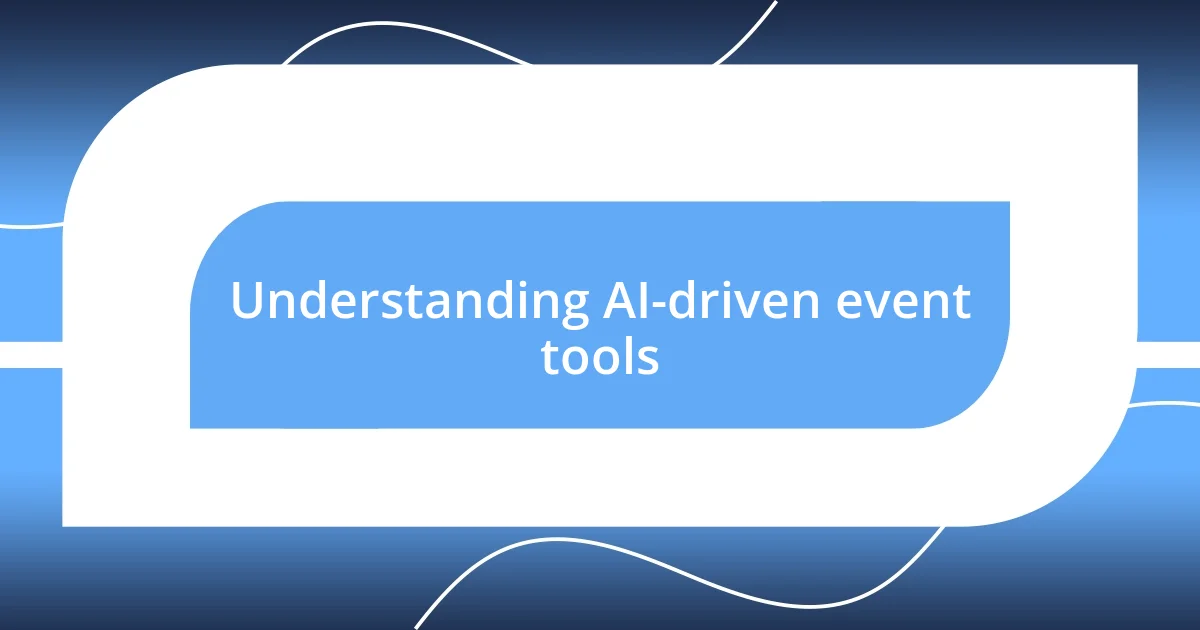
Understanding AI-driven event tools
AI-driven event tools have transformed the way we plan and execute gatherings. I remember my first time using one; I was amazed at how quickly it analyzed attendee behavior and preferences, helping me tailor the event to suit their needs. Have you ever felt overwhelmed sifting through data manually? These tools cut through that chaos, allowing an intuitive understanding of audience dynamics.
The beauty of these tools lies in their ability to learn. I once used an AI platform that continually adjusted recommendations for speakers and topics as RSVPs rolled in. It’s like having a personal assistant that not only knows your audience but is constantly improving its suggestions based on real-time feedback. Isn’t it comforting to know that technology can take some of the guesswork out of engagement?
Moreover, leveraging AI for things like event promotion can dramatically boost reach. For instance, I utilized targeted social media ads recommended by the tool, and the turnout exceeded my expectations. Have you considered how AI can not only save time but also enhance connections with your audience? The integration of these advancements is about more than efficiency; it ignites excitement by creating events that resonate deeply with attendees.
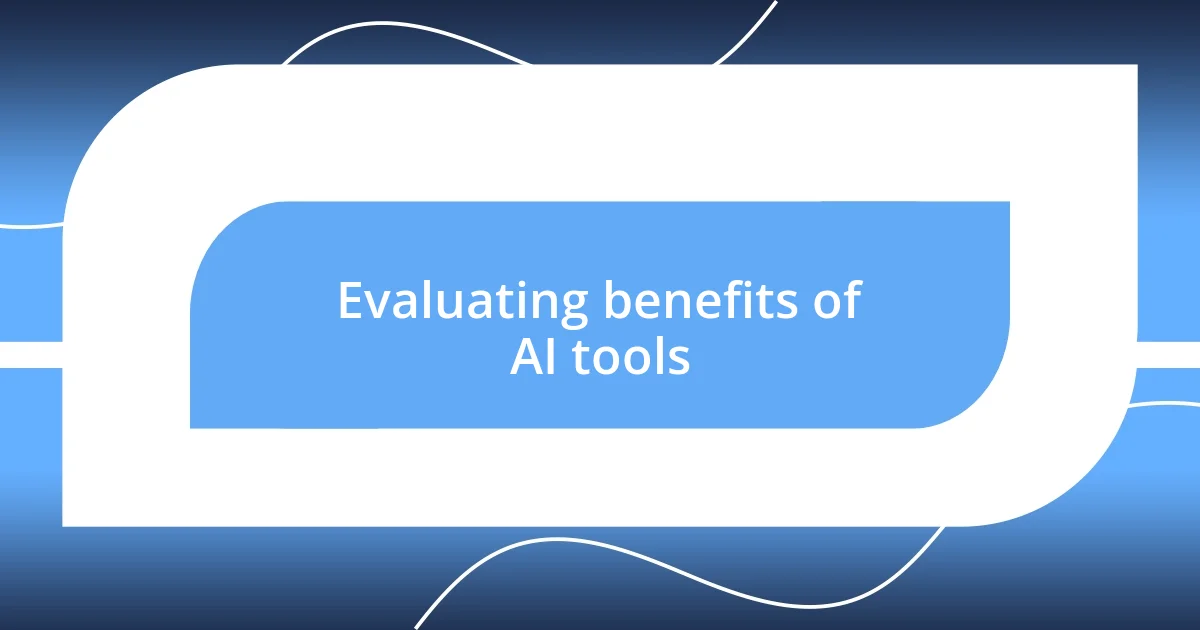
Evaluating benefits of AI tools
When evaluating the benefits of AI tools, it’s essential to recognize their profound ability to streamline processes. I recall a time when coordinating logistics felt like a juggling act, but with AI, it was like having a wise guide at my side. Suddenly, the complexities — from scheduling to resource management — became much more manageable. The clarity these tools provided was a game-changer.
Here are some key benefits I’ve noticed:
- Time Efficiency: Automating mundane tasks frees up my schedule for strategy and creativity.
- Personalization: Enhanced data insights allow me to cater specifically to attendee interests — I remember adjusting my event based on real-time feedback, and the attendees felt more engaged than ever.
- Cost-Effectiveness: By streamlining operations, I found I could allocate resources more effectively, ultimately saving money.
These aspects are not just metrics; they resonate deeply, highlighting how technology not only makes my work easier but also enriches the experiences I create for others.
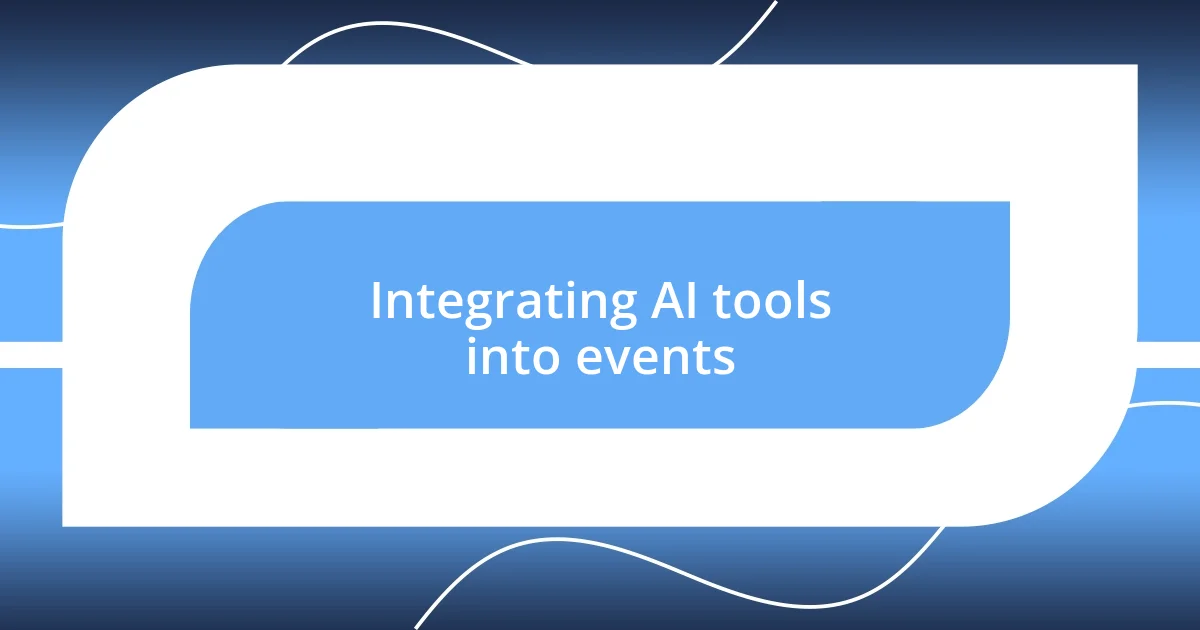
Integrating AI tools into events
Integrating AI tools into events has opened up new avenues for innovation and engagement. I still remember the first event where I fully embraced AI for managing attendee check-ins. Rather than the usual lines and stressed faces, we had a smooth, almost enjoyable experience because the AI tool efficiently processed registrations. It felt less like an administrative task and more like welcoming guests to a party. Have you ever seen audience members relax because they’re no longer waiting in long lines?
I’ve also noticed how AI can enhance the creativity behind the event planning process. When I used an AI tool to analyze popular themes and engagement from past events, it sparked countless ideas for future gatherings. It was like having a brainstorming session that never ran out of steam. I felt inspired and empowered to explore different concepts that would resonate with my audience, making events not only memorable but genuinely enjoyable. Isn’t it satisfying to know that your planning decisions can be backed by intelligent insights?
One practical aspect I found invaluable is the predictive analytics offered by these tools. In one instance, I was able to anticipate staffing needs based on previous attendance trends captured by the AI system. The result? A well-staffed venue that allowed for a seamless experience for every participant. This kind of foresight is something I really appreciate; it alleviates stress and ensures the event runs like clockwork.
| Aspect | Human Planning | AI Integration |
|---|---|---|
| Efficiency | Manual processing can be time-consuming and prone to errors. | Automated systems streamline tasks, preventing bottlenecks. |
| Insights | Depend on personal experience or gut feelings. | Data-driven recommendations enhance decision-making and creativity. |
| Engagement | Reactive responses to the audience’s needs during events. | Proactive strategies based on predictive analytics foster deeper connections. |
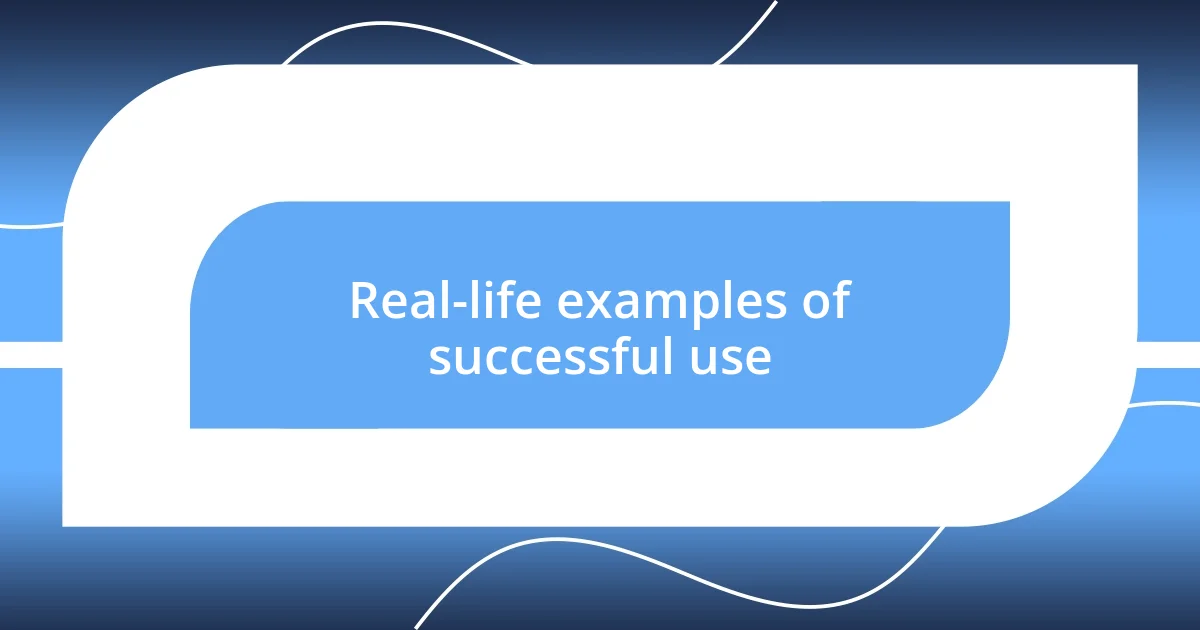
Real-life examples of successful use
One standout example that springs to mind is a conference I organized where we leveraged AI-driven networking tools. Attendees were paired based on shared interests and goals, which was a revelation. I’ll never forget the moment I saw two professionals who had never met before bonding over complementary projects. It made me wonder: isn’t that what events are truly about—creating connections that lead to collaboration?
Then there was the time I implemented an AI-powered feedback tool during a workshop. I encouraged participants to share their thoughts in real-time, and boy, did it transform the atmosphere! As I watched the live reactions unfold on screen, I felt a rush of excitement. It was as if we were co-creating the experience. That immediate feedback offered such an authentic gauge of engagement that I left the session feeling both proud and inspired. Who knew that technology could deepen our interactions so effectively?
Lastly, during a large festival, we used AI for crowd management, predicting peak times and adjusting staff accordingly. I distinctly recall standing back and observing a harmonious flow, where guests felt comfortable and safe. Seeing smiles instead of chaos is a memory I cherish. It left me reflecting: can we really put a price on peace of mind at large events?

